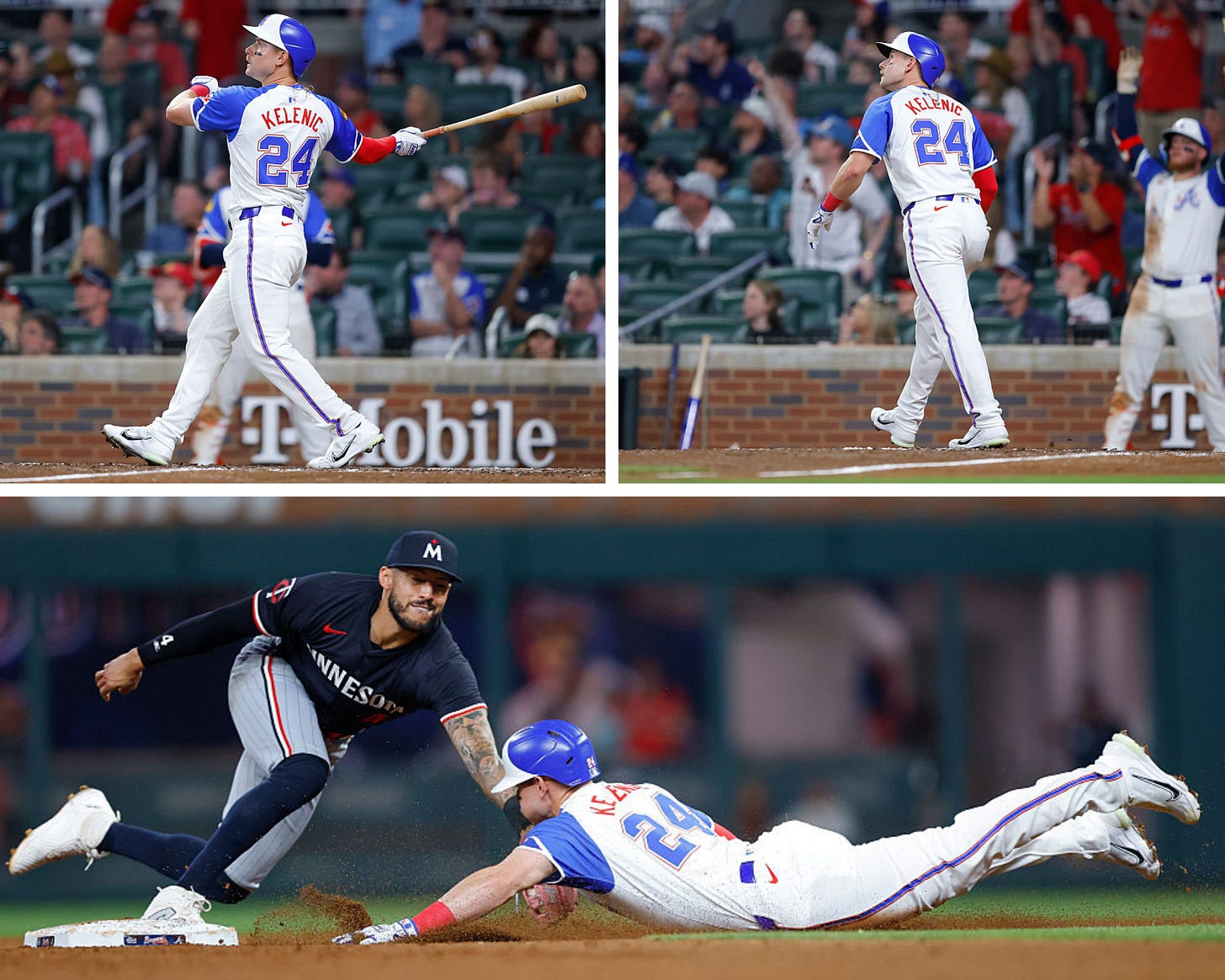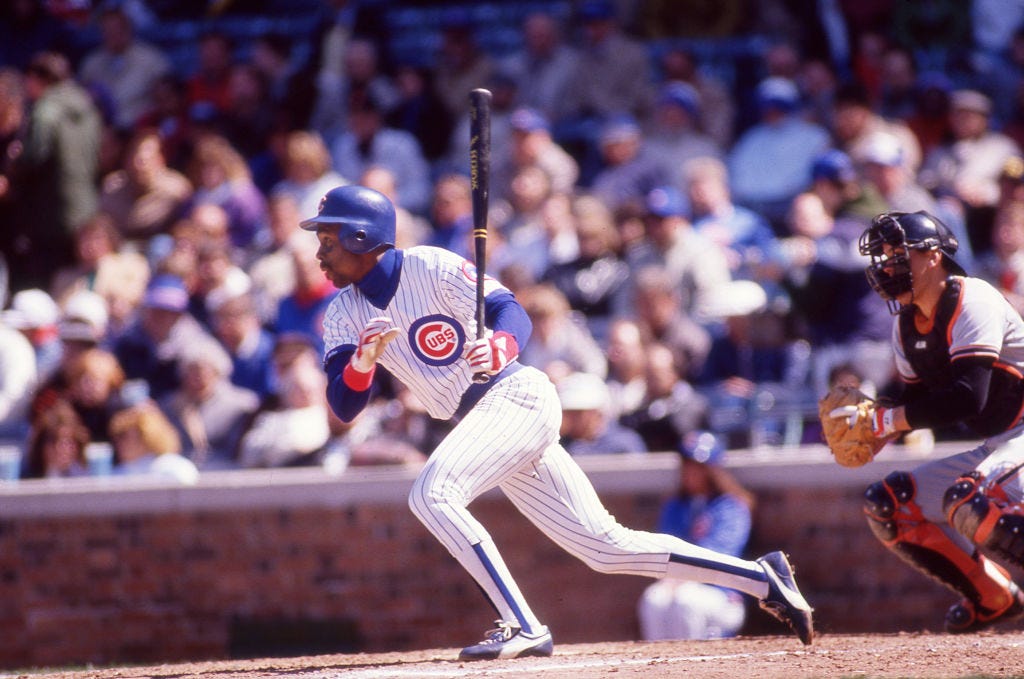
During an early spring training game when I was playing in the minors with the Chicago Cubs, I picked up a simple phrase from watching the play of one of the veteran players:
“Hustle is free.”
I am not sure who said it first, but I attribute it to my teammate, Shawon Dunston.
I had often heard that Dunston, a Brooklyn native, had raw talent. It showed up in the lightning bat speed, the cannon for an arm, the wheels. But when I saw all of this firsthand as a teammate, I had to reevaluate what “raw” really meant. We often use that word to describe something unfinished or unpolished. Someone who relies too much on natural ability and may never fully develop.
Then one afternoon, I watched him hit a high pop-up into short center field. I kept my eyes on the ball because in the Arizona spring sky, once you lose it, you may never find it again.
As the ball came screaming down, I fully expected Dunston to take it easy. He was the wise veteran. He already had the resume and did not have to worry about making the team. He had no need to prove anything in a meaningless spring training game. Plus, he was coming back from back surgery. Why push it? So when I looked for him, I had to do a double take. Not only was he running, but apparently, he had been sprinting full speed from the batter’s box from the moment of contact. That was the only explanation for why, when the ball came down, he was already motoring into second base.

That moment changed something in me. No one has an excuse not to hustle. Especially not me, the one person I have complete control over. From that day forward, I vowed to run hard on every ball, even the ones hit straight back to the pitcher. Use my speed, all of it. It costs nothing.
I started to enjoy the pressure it created. Infielders rushed throws. Pitchers flinched. I earned a reputation for going hard. In most games you get four plate appearances, so that is four chances to sprint if you are lucky. You might walk, you might strike out, but when you do have a chance to run, you run hard.
Others, whose example I could have followed, did not do it Dunston’s way. Dunston and I shared a lot of the same adjectives when people described our ability in the game—raw, unfinished—and I knew, as someone years his junior, I needed more polish as a matter of experience. But hustle? That wasn’t about skill nor years in the game. Hustle is its own independent variable. It does not care about your stats. It does not care that you are distracted by an error in your bio on the scoreboard or that the pitcher fooled you with a dastardly slider. Hustle only asks: can you try your hardest?
In a time of great showmanship, there is often a collision between premature celebration and a lack of hustle. Just recently, Jarred Kelenic of the Braves hit a ball that he thought was out of the park. He posed, bat in hand, watching almost all the way to first base. But the ball hit the top of the wall and stayed in play. He scrambled and shifted gears to try to make it to second base.
But, he didn’t make it.
If he had run from the start—if he had hustled instead of assuming—it would have been an easy double, putting him in scoring position for his team. He had also been struggling at the plate, so if there was ever a time to secure a hit, build momentum, and do that extra something for his team, that was it. But instead, he chose to pose.
In his defense, his manager highlighted his effort overall, and to Kelenic’s credit, he took responsibility and apologized for his actions. Still, the incident sparked controversy. Ronald Acuña Jr., a currently injured star on the same team, pointed out a double standard—he had been pulled from a game for similar behavior, while Kelenic was allowed to remain in the game.
It is not uncommon in today’s game for batters to admire their work after a good swing, and in many ways, I support the new culture of celebration in the game. For too long, baseball was weighed down by outdated etiquette and unspoken rules that drained the joy out of it. But moments like in Kelenic’s highlight the downside of celebrating too early, before the outcome is certain. As my mom would say, they are trying to “get there without going.”
I hit 59 career home runs (it should’ve been 60, but I’ll save that story for another day). And, I rarely assumed anything about a ball leaving my bat. Likely home run or not, I ran. Any exceptions were in line with the norms of my era. For example, there was one time in Montreal where I hit a ball that was clearly gone, but it was down the line. The only question was fair or foul. In my time, that was an acceptable reason to watch the ball from the batter’s box. That is not to say that out of desperation I never watched one fly—especially when I was in a slump, pleading with the ball to go out like a dog begging for a treat. Sometimes you are gauging where to run and how to get there.
And, sometimes you take the risk when you are setting up a baseball-card worthy shot, convinced it is over the fence. That is usually where your problems start.
So, yes, there were moments I spectated to get a read. I wanted to see where the ball landed so I could figure out the next gear. And yes, pace matters. You do not want to get into no man’s land. This shows itself more on defense. Outfielders know this well. You are trying to arrive at a spot under control, so you have to play with your gears. But on the base paths? You run hard. Then, if needed, you downshift—for an evasive slide, to avoid overrunning a base, or to read the play. But the default is go. Always go.
But Shawon taught me something else: a triple starts with your first step out of the batter’s box—not somewhere between first and second. Sure, sometimes an outfielder trips or you are playing in a ballpark the size of Yellowstone National Park, but the real hustle starts at the crack of the bat. And, hustle means pressure on the defense.
Hustle is free. And so is the humility to not assume your work is done until it is done.
Hitting a home run is euphoric. Hitting one you call off of the bat is an art. It means you know your swing, the wind, the park. It is beautiful to connect with a ball and instantly know it is gone. You flip the bat, name the seat it is headed to, and telepathically tell the popcorn vendor to duck. The celebration begins—you are that good.
But, sometimes the ball hits the top of the wall. Or a gust of wind knocks it down. Or, a great center fielder robs you with a heroic leap. And there you are—bat in hand, left at the altar of self-congratulation.
It is better to run. Underestimate yourself. Be surprised when you end up on third. Run. Be amazed when the ball crashes into the second deck and you realize, I did that.
Be patient. Let the ball do what it is going to do, and enjoy what it means after. Help your team, and honor the freedom of hustle. Do this, and you will avoid the embarrassment of raining on your own parade.





Great article. Hustle certainly pertains to life in general. Most of the time, opportunities don't just fall into your lap. Takes hustle to make it!
59 HR off of 54 pitchers.... who is the lucky one that would have been 60?
I really enjoyed the nuance in this piece. You can’t just sprint around 1st only to find yourself hung up on a long single. Hustle, plus awareness. Rose had that. We share a birthday, he was short (there’s no way he was 5’11”), and played hard, so I looked up to him as a kid. I didn’t have power, so legging out grounders was my Little League specialty. I had a bunt home run when I was 10. It took three throwing errors, but I just ran and heard the coach yelling, “Go, go, go!” Funniest part was me practicing my bunt technique in the batter’s box after getting the sign. Coach came over and said, “Okay Brian, save it for the at bat.” These are things you never forget, and man, you have certainly remembered a lot!